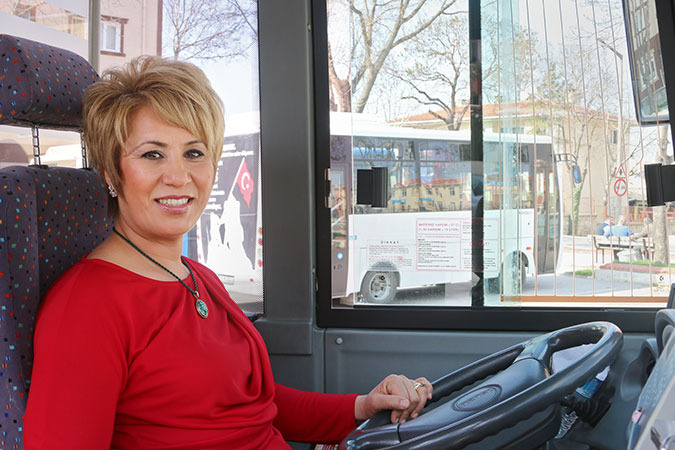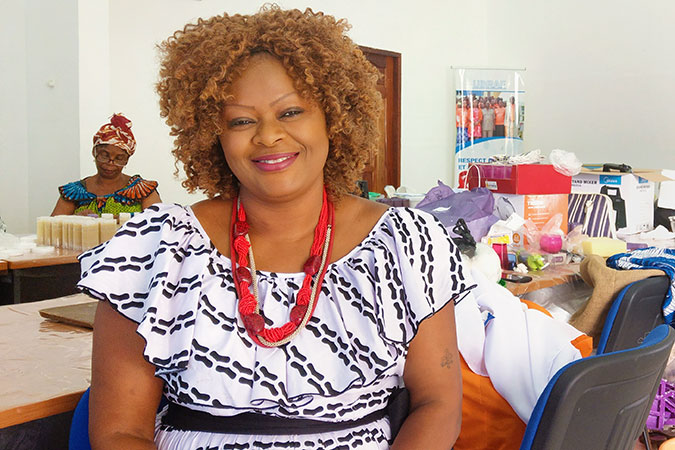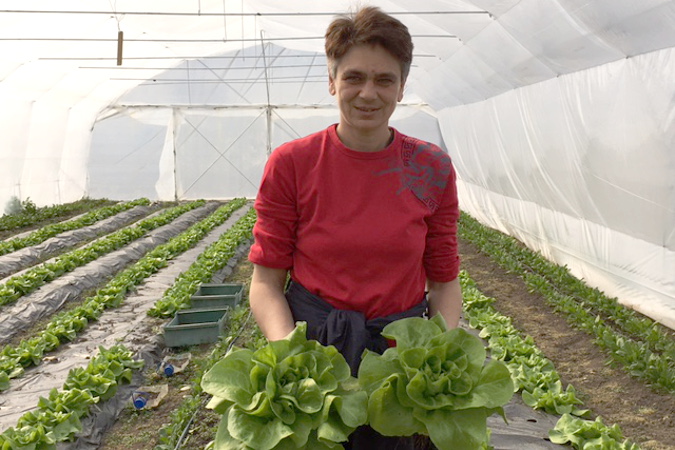SDG 12: Ensure sustainable consumption and production patterns
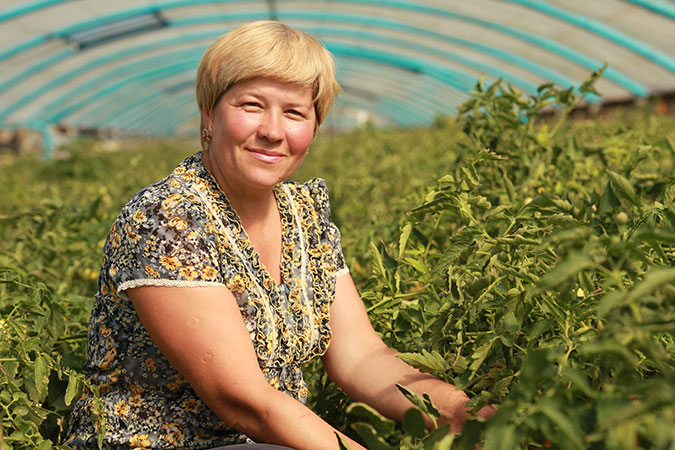
Targets
- Implement the 10-year framework of programmes on sustainable consumption and production, all countries taking action, with developed countries taking the lead, taking into account the development and capabilities of developing countries.
- By 2030, achieve the sustainable management and efficient use of natural resources.
- By 2030, halve per capita global food waste at the retail and consumer levels and reduce food losses along production and supply chains, including post-harvest losses.
- By 2020, achieve the environmentally sound management of chemicals and all wastes throughout their life cycle, in accordance with agreed international frameworks, and significantly reduce their release to air, water and soil in order to minimize their adverse impacts on human health and the environment.
- By 2030, substantially reduce waste generation through prevention, reduction, recycling and reuse.
- Encourage companies, especially large and transnational companies, to adopt sustainable practices and to integrate sustainability information into their reporting cycle.
- Promote public procurement practices that are sustainable, in accordance with national policies and priorities.
- By 2030, ensure that people everywhere have the relevant information and awareness for sustainable development and lifestyles in harmony with nature.
- Support developing countries to strengthen their scientific and technological capacity to move towards more sustainable patterns of consumption and production.
- Develop and implement tools to monitor sustainable development impacts for sustainable tourism that creates jobs and promotes local culture and products.
- Rationalize inefficient fossil-fuel subsidies that encourage wasteful consumption by removing market distortions, in accordance with national circumstances, including by restructuring taxation and phasing out those harmful subsidies, where they exist, to reflect their environmental impacts, taking fully into account the specific needs and conditions of developing countries and minimizing the possible adverse impacts on their development in a manner that protects the poor and the affected communities.
Producing and consuming in unsustainable ways drives climate change and the destruction of the environment.
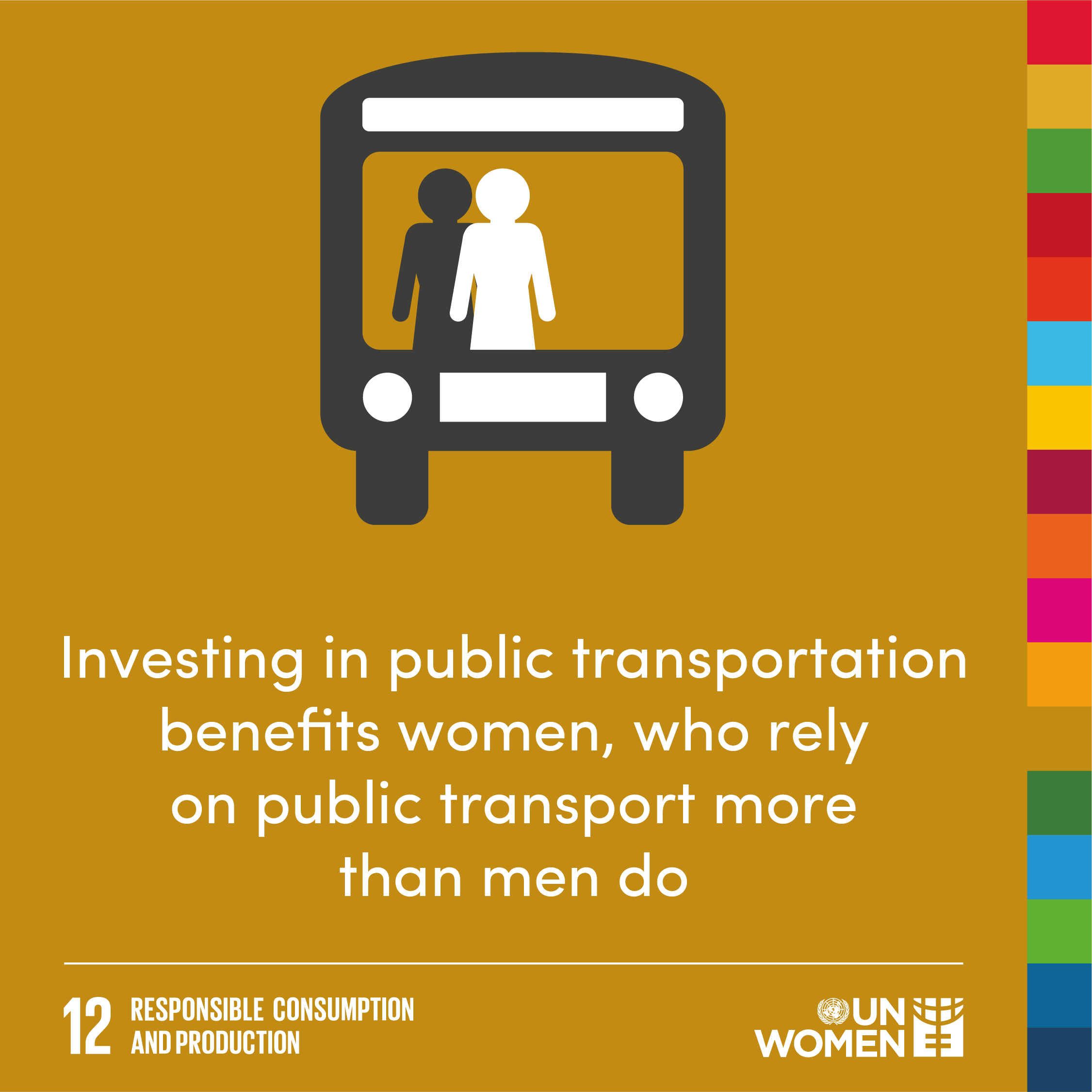
People everywhere are consuming more than ever before, but much of this is concentrated in the wealthiest countries and populations. For 767 million people living on less than $1 a day, the problem is not consuming too much, but consuming too little, often barely enough to survive.
Responsible consumption and production depends in part on reducing overconsumption. It is important to shift production processes so that at each stage they are sustainable and avoid overuse of natural resources.
One area where a better balance could be struck is public transportation. Private vehicles remain a heavily consumed good that makes significant contributions to emissions. Evidence suggests that women are less likely to drive than men, and more reliant on public transport. Investment in energy efficient modes could therefore yield large benefits for the environment and for women.
UN Women acts to redress imbalanced consumption and production by advocating for policy reforms that back equitable ownership and use of property and resources.
Stories
From where I stand: Pelin Aslantaş
By making public transportation inclusive and safe, by hiring women bus drivers like Pelin Aslantaş, the city of Edirne, Turkey, is making strides towards reducing carbon footprints made by cars in the city.
Powering up women’s income in Côte d'Ivoire through climate-smart shea butter production
Rising deforestation presents a major threat to the livelihood of women who work in shea butter production. A UN Women- programme, in partnership with the Government of Côte d'Ivoire has provided a climate-smart solution to reducing deforestation, while bolstering rural women’s economic empowerment.
In Serbia, women survivors of domestic violence find hope in the “Good Garden”
The “Good Garden” in Serbia not only a social enterprise for growing organic vegetables but also a training centre for for women survivors of domestic violence who wish to get involved in this sustainable farming method.
